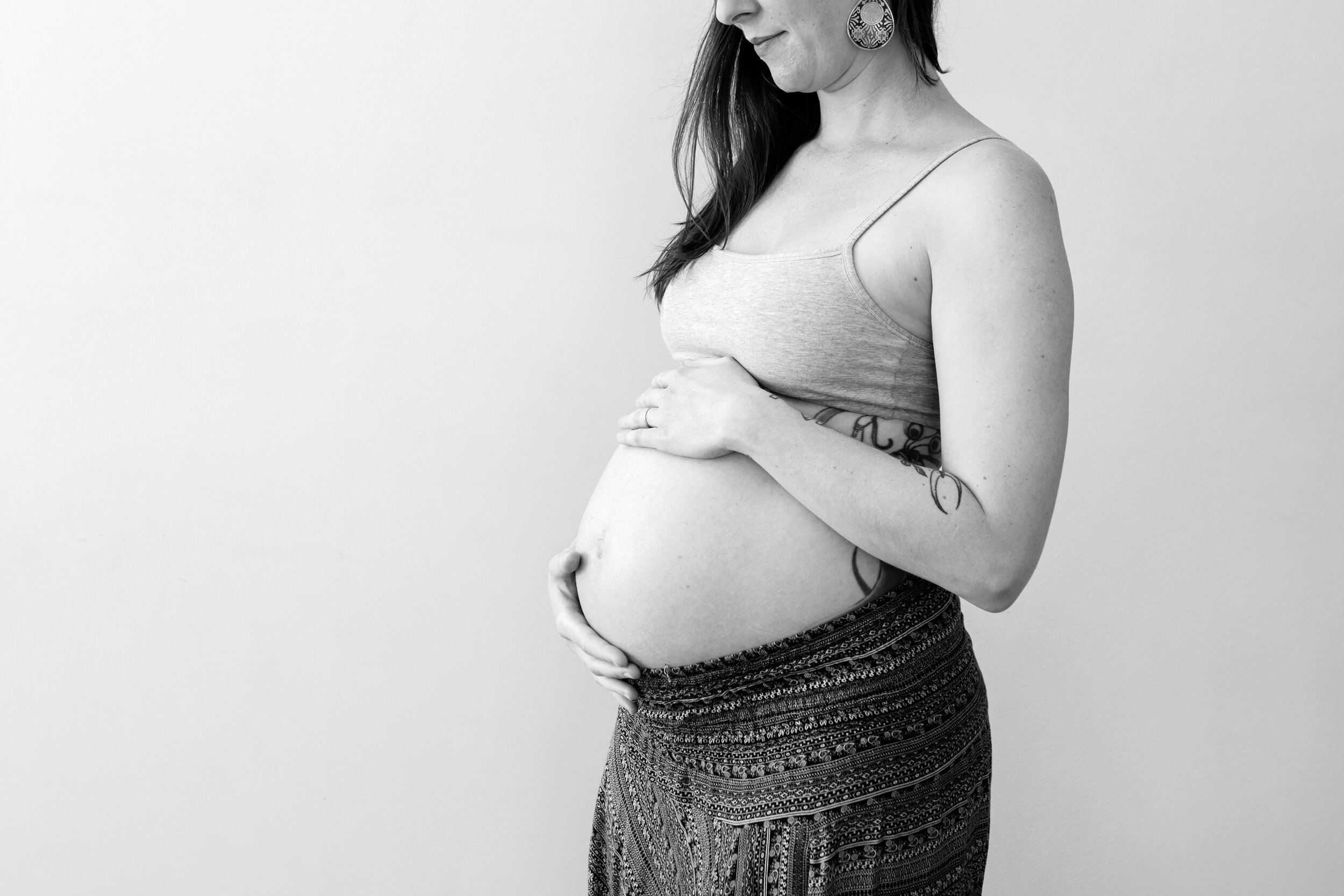
The Fantasy of an Intervention-Free Birth (or, How You Didn’t Give Birth Wrong)
Keep this content free by becoming a subscriber from $5/month
*Content warning: birth stories
“Having done it both ways,” my friend Marcelle* told me after giving birth to her second baby, “I give unmedicated labour a 0/10.”
There’s a mystique around giving birth without medication. It’s like a badge of honor: I am woman, hear me roar. Or scream: I gave birth without much more than a little laughing gas (which does nothing, by the way) and my doctor kept telling me to “save my voice.” I remember thinking in my labour delirium, Why? Am I giving a speech later?
My childbirthing class involved a lot of information about orgasmic birth. Every class, there was some sepia-filtered video of an earth mama giggling in a birthing tub in her backyard. We talked about the ladder of endorphins, the idea that as the pain rises, so do our natural “feel good” hormones, and that any intervention or pain medication would interrupt that natural pain management process. We talked about making out and nipple stimulation to help with labour pain. Which—yes, I understand that oxytocin aids in labour. I get that this information is meant to help us feel less freaked out about the idea of giving birth. But it also didn’t prepare us for what birth was really going to be like. And no matter how much of an earth mama you try to be, I just don’t think you get to choose whether or not your birth experience is orgasmic—not to mention intervention-free.
I had drunk the Kool Aid on “natural” birth, even though I’d been actively trying not to. I knew, cognitively, that a good birth was one where the baby and I survived. I knew that having a birth plan was pretty much a waste of effort, and I certainly did not expect to have an orgasmic birth. But the misogyny of our culture is so deeply embedded in my body that I still found myself believing that if I couldn’t do it “on my own” I would be failing in some fundamental way. So my birth preference was to avoid as many interventions as I could. On some level I felt it was better—safer, more powerful, more interesting, I’m not sure exactly what—to see what my body could do. I guess I wanted to allow myself full access to one of the most amazing experiences of my life. To really be able to feel when my body wanted me to push so that I could avoid tearing. To avoid the small risk to me and the baby that some of these interventions come with. And to avoid, you know, having a NEEDLE inside of my SPINE. Inside of my SPINE.
I’d been doing my yoga and my Kegels. I had been seeing my acupuncturist weekly and taking all the supplements my naturopath told me to. I had my Push playlist full of fun music to remind me that I’m safe and this is exciting. My doula was standing by with her machine with the vibrating pads ready to slap them on my butt and hit go.
But 12 hours after my water broke, my contractions still weren’t really happening. I needed an induction. This was something I’d feared in particular, as I’d heard it would cause a cascade of interventions from an epidural to an episiotomy, not to mention breaking that ladder of endorphins. It didn’t. It worked fine, and when the baby popped out four hours later, I was relatively uninjured. I mean, it hurt (a lot). But I got through it.
At least, until the placenta wouldn’t come out. This led to a manual placenta removal, which involved some fentanyl (not on my birth plan) and IV antibiotics (definitely not on my birth plan).
I was in a lot of pain for a long time after the birth due to undiagnosed placenta accreta. I’d needed an extra surgery (also not on my birth plan) and a lot of bed rest in the first several months after the baby was born because of this placenta complication (if you haven’t given birth yet, do not worry about this, it is exceedingly rare). Feeling weak, useless, and vaguely traumatized, I found myself wondering if all these problems could have been avoided if I had only refused the induction. Maybe if I’d waited another 12 hours, like my doula had told me to, the birth would have happened more naturally, more perfectly. Maybe it would have hurt less and the placenta wouldn’t have gotten so stuck.
This is, of course, ludicrous. My placenta was buried so deep in my uterus it might as well have built a town hall in there. But the mythology about natural birth is so powerful that it gave me an easy place to neatly tuck all my anxieties about my own failures as a mother and a woman and a human being.
Over the last year, I’ve spoken to many women about their birth experiences. Many of them felt some level of regret: whether it was a c-section, an induction, an epidural, or something else, everyone felt they could have done something to have a more perfect, less traumatic birth.
But maybe the thing is is that birth (especially a first birth) is a really, really intense experience. It is scary, it really hurts, the recovery is always longer than you expect it to be, and nothing is ever the same again. Yes, it’s a beautiful, wonderful, amazing thing, but it’s a lot for one person to process. We are human beings, and when human beings can’t make sense of our big emotions, we tend to blame ourselves. Blaming ourselves is the quickest way of understanding something unfathomable: if I’d just done it differently, I could have avoided all this pain. I can protect myself from this pain in the future by avoiding whatever it is I did wrong. “Natural” birth is just one of many ideas pushed on women that can cause us to slip down the steep, wet hill of mom guilt.
A text from my brother, Zack
Before I gave birth, I was inundated with birth stories. Some were about amazing, orgasmic, intervention-free births. Others were cautionary tales full of bad outcomes with the vague stink of failure: she didn’t have a doula. She didn’t drink enough water during her pregnancy. She should have done it at home and avoided the temptation of epidural. She forgot to cross the tiles on her kitchen floor six times backward while praying to the ancient goddess of sexual bliss. If only she had been stronger, more connected to her femininity, she would have somehow known how to give birth “correctly.” If only Eve hadn’t sinned in the first place, and we wouldn’t be in this mess, right?
I have not always had a good time with medical doctors. They are too fast, they don’t listen to enough history, and when there’s a chronic condition going on, they basically have no clue what to do. I found my acupuncturist and my naturopath incredibly helpful during my pregnancy, and I would certainly work with them again if I do this a second time around. But ironically, it was my medical doctor who calmed my nerves and made me feel safer about all the things that went wrong. She had a solution for all of them. None of them would harm the baby.
After I gave birth, I started hearing different kinds of stories. When I asked a friend what she thought of her epidural after it turned out she needed one, she called it “heaven.” Another felt that her birth was perfect, even euphoric, including that tricksy epidural that had, theoretically, interrupted her ladder of endorphins. Her secret may have been that no one had told her about the ladder of endorphins. Epidurals help. Inductions work. IV antibiotics save lives. Whatever happened during our births, we didn’t do it wrong. Okay? We didn’t do it wrong.
However this baby got here, it was right!
Of course it’s totally reasonable to want to try birth without an epidural, or at home, or however you feel most comfortable. I am glad I did all that yoga and took a holistic perspective to prepare for my birth experience. But at this point, it’s not the induction that I regret, but rather that I allowed myself to be convinced that if I needed medicine that there was something wrong with my womanliness. Our society has been trying to convince me that I’m a failure as a woman for so long and in so many different ways, I missed it this time. And clearly this is not the last of the pressures I will feel as a mother in a society that historically hates and oppresses women and feminine people.
So I am going to resist. Being a new mom is hard enough; I don’t need to feel bad about surviving my birth experience. And if you feel bad about whatever happened with yours, I encourage you to consider letting that go as a form of feminist resistance.
And if I ever do this again, you’d better believe I will be asking for an epidural.
*Marcelle Kosman is one of the funniest and smartest people I know. She has a fascinating critical feminist podcast on the Harry Potter world: http://ohwitchplease.ca/
Keep this content free by becoming a member from $5/month. If you’re already a member, thank you for supporting this work!



